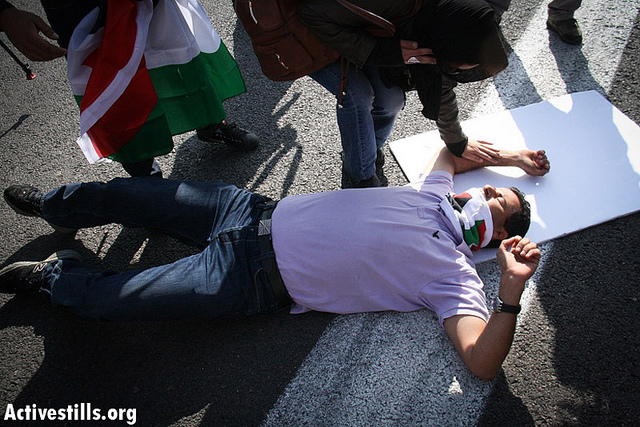Tag: Apartheid Roads
-
Settlers hit activists at peaceful roadblock protests in the West Bank
by Davey Brandi and Ellie 3 December 2012 | International Solidarity Movement, West Bank On two different occasions while Palestinians, accompanied by international activists, peacefully blocked roads leading to illegal settlements to demonstrate against the occupation and settlements, settlers purposefully injured activists in hit and run incidents. On November 14 while a group of protesters…
-
What happened on the 10th of January in Jericho
14 January 2012 | Mahmoud Zwahre, Al Ma’sara Village I would like to thank all of you who stand with us, who have showed amazing support these past three days and demanded our immediate release from Israeli military jail. I hope that we will be able to free Omar Dar Ayoub from Nabi Saleh soon,…
-
Demonstrators Block Route 60 Near Beit Ummar
Popular Struggle Coordination Committee 6 March 2010 Demonstrators protesting the deceleration of the Cave of the Patriarchs and Joseph’s Tomb as Israeli heritage sites, manged to block the main road from Jerusalem to Hebron. In response to the inclusion of the two holy sites in the list of Israeli heritage sites, and fearing that this…

